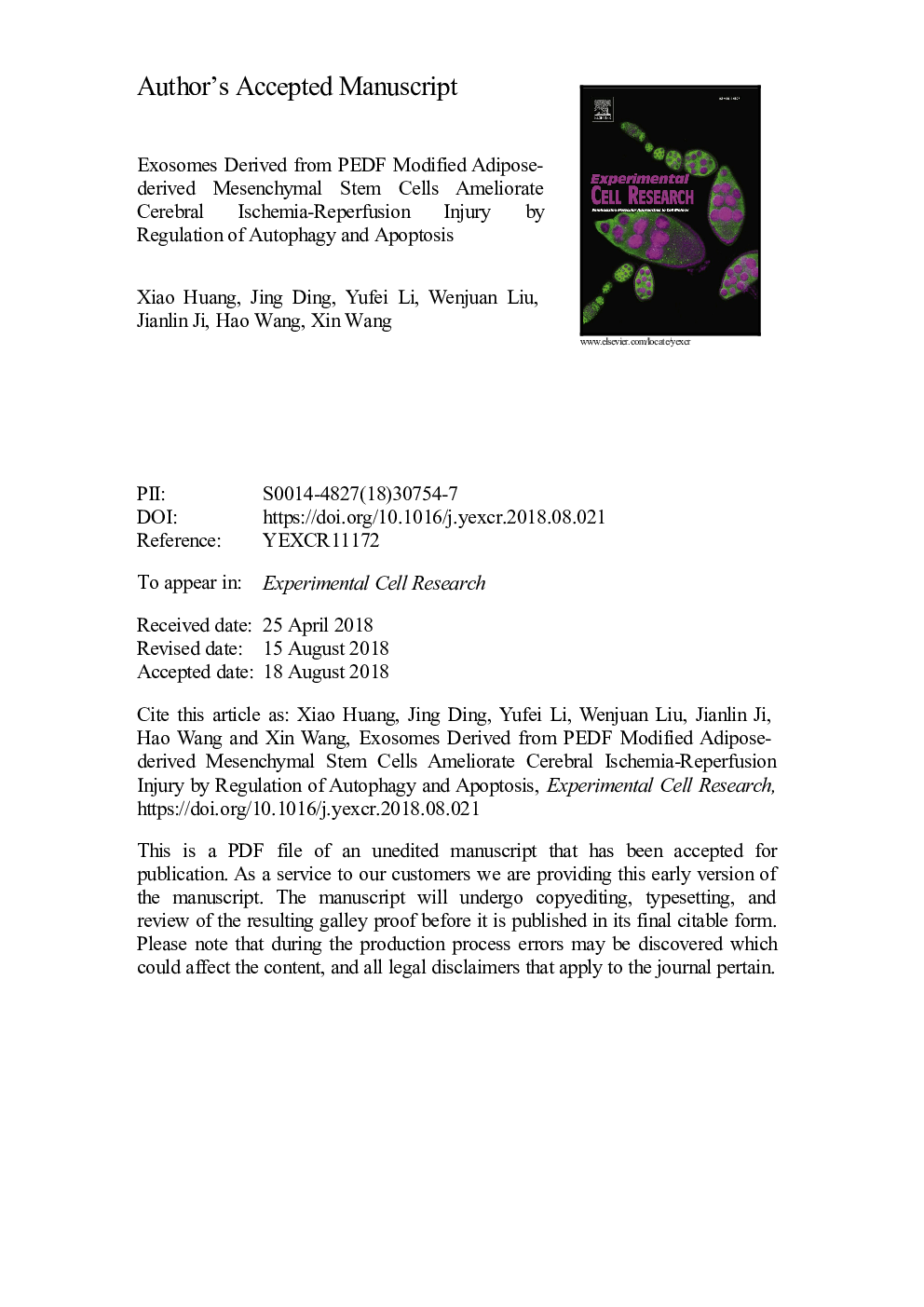| Article ID | Journal | Published Year | Pages | File Type |
|---|---|---|---|---|
| 8962177 | Experimental Cell Research | 2018 | 28 Pages |
Abstract
Increasing evidence suggest that exosomes from mesenchymal stem cells have therapeutic effects in cerebral ischemia-reperfusion (I/R) injury, but the underlying mechanisms are unclear. Pigment epithelium-derived factor (PEDF) is a multifunctional protein that exhibits anti-inflammatory, antioxidative, and neuroprotective properties. We investigated the involvement of PEDF in I/R, using adipose-derived mesenchymal stem cells (ADSCs) isolated from rat. PEDF-overexpressing ADSCs were constructed and exosomes from ADSCs were isolated. SY-5Y cells were employed to identify the protective effects of exosomes in oxygen-glucose deprivation (OGD) experiments. Exosome treatment suppressed OGD-induced apoptosis by inhibiting the two-step caspase dependent (caspase-9 and caspase-3) apoptotic pathway. Increasing the PEDF content of exosomes further promoted the protective effect against OGD-induced apoptosis by activating autophagy, while blocking autophagy reduced the effect of PEDF-containing exosomes. We constructed a middle cerebral artery occlusion-reperfusion (MCAO) model using male Sprague-Dawley rats to identify the role of PEDF in exosome-mediated neuroprotection. These in vivo experiments further confirmed that exosomes from PEDF-modified ADSCs ameliorated cerebral I/R injury by activating autophagy and suppressing neuronal apoptosis. These findings suggest that PEDF plays a role in exosome-mediated prevention of cerebral I/R injury by modulating apoptotic factors and promoting autophagy.
Keywords
Related Topics
Life Sciences
Biochemistry, Genetics and Molecular Biology
Cancer Research
Authors
Xiao Huang, Jing Ding, Yufei Li, Wenjuan Liu, Jianlin Ji, Hao Wang, Xin Wang,
